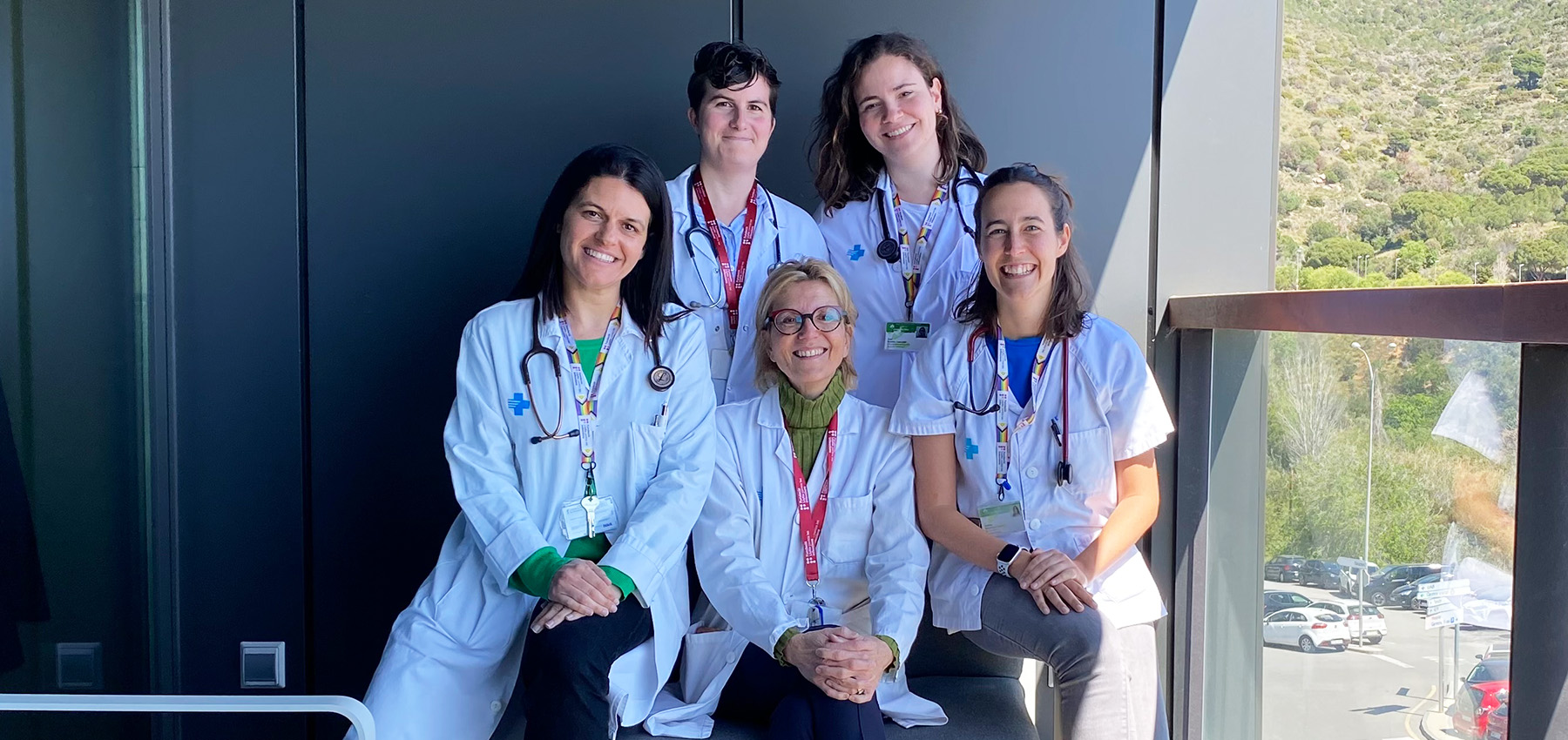At the Fight Infections Foundation we have a research unit specialized in immunocompromised patients, who are those who have a weaker immune system and, therefore, can acquire an infection more easily.
To delve deeper into the work carried out by the Infections in Immunodepressed Patients Unit, we spoke with Dr. Lluïsa Pedro-Botet, doctor at the Germans Trias Hospital and head of this research unit at the Fight Infections Foundation.
What are immunodeficiencies?
Immunodepression does not have a unanimous definition, but international and local guidelines agree that it is a deterioration of the immune system that can be either general, systemic to the human body, or local, affecting only a specific organ. Various consequences result from the weakening of the immune system; one of the most relevant is that it increases the risk of contracting an infection.
What is the current situation of these diseases that affect the immune system?
At this time we find a constant increase in immunodeficiencies because there are more and more solid organ transplants, the transplantation of hematopoietic progenitors is increasing greatly and treatments with small molecules, selective immunosuppressants, are increasing, because they are capable of curing inflammatory diseases. , as is the case of rheumatologies and many others. All these treatments designed to improve a specific condition have their counterpart, since in many cases they weaken the immune system.
Why was the immunocompromised unit created?
We have created this unit at the Germans Trias Hospital because we are aware that this tsunami is coming to us in number and severity of diseases in immunocompromised patients and we wanted to agree on protocols aimed at the prevention of infection, diagnosis and early treatment in the severely immunocompromised population.
What does this unit do?
From this unit for immunosuppressed patients, which is made up of a team of five doctors: Rosa Benítez, Carme Bracke, Ana Peris, Alba Romero and myself, we mainly lead three things. The first is the healthcare part, since this occupies a large number of hours for the entire team, the second major activity is the research that we carry out as researchers at the Fight Infections Foundation and, finally, the teaching sphere that we personally I lead as a professor at the Universitat Autònoma de Barcelona (UAB). We also carry out postgraduate training through the Foundation’s knowledge transmission platform: ScienHub and at the Germans Trias i Pujol IGTP Research Institute.
What studies are you leading at the moment?
Right now we carry out research in competitive projects, non-competitive projects and clinical trials promoted by the Foundation itself. At this moment we are collaborating with the Josep Carreras Foundation in a study on chronic lymphatic leukemia and secondary immunodeficiency vs. primary. The objective we have set is to determine if the immune system of a patient with chronic lymphatic leukemia who develops an immune alteration with immunoglobulin treatment can improve the deterioration of their immune system. In addition, we participate in different clinical trials that we lead directly from the Foundation, such as SUPERNOVA, or PAXLOVID, which we have already completed and which aimed to prevent serious complications with patients with mild COVID with severe secondary immunodeficiency.
What is the importance of having created this unit?
The mission we have is to achieve optimal and comprehensive management of the severely immunocompromised patient: prevention, diagnosis and treatment. In this sense, we also do a great job of empowering the patient by giving them maximum information to improve their physical and psychological well-being, since in this last aspect we have joined the “I have a PID program. I’m older and I’m not alone” through which we offer psychological support to these patients. We are also part of different local, national and international forums that help us stay up to date with any news that arises in our medical specialization.
What support does the Foundation offer to these patients?
The Foundation is aware of the increase in the number of people who have a severe immunodeficiency and, therefore, joins research into infections in immunosuppressed patients through clinical trials that aim to identify treatments that can cure them or improve their quality of life.












Share